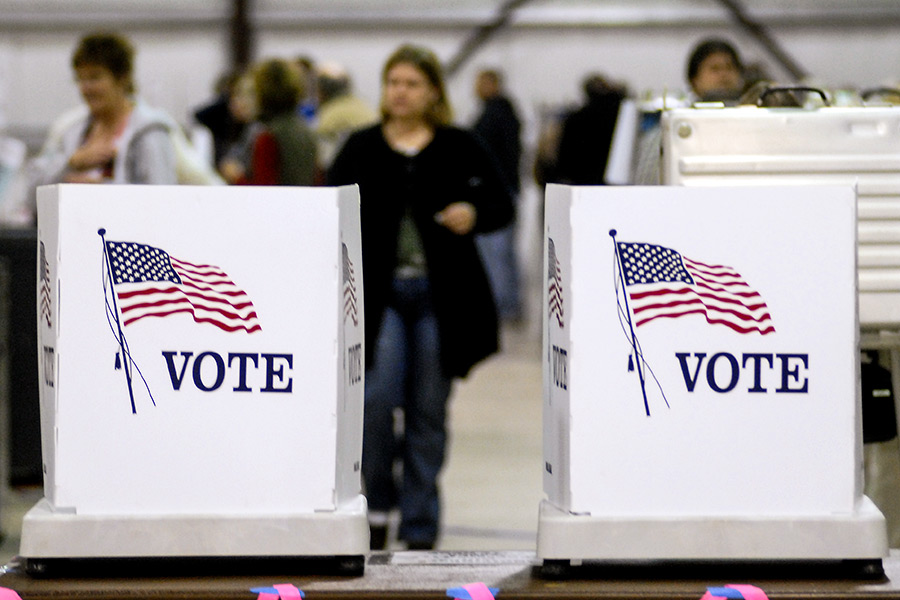As critical to democracy as they may be, elections are expensive. They sap county resources, and a sudden shift in political winds can impose exorbitant costs on the cash-strapped election departments that fund the process.
Take for instance the state general election last November, which cost more than $3 million and was the most expensive statewide election on record (historically, statewide elections in Montana cost about $2 million). Part of the expense was due to high voter turnout, but counties also accrued significant costs when election officials were forced to reprint ballots after Libertarian candidate Mike Fellows was killed in a September car accident.
Flathead County alone spent $200,000 on the general election and an additional $13,000 reprinting ballots, according to Monica Eisenzimer, the county’s election supervisor.
So it’s no surprise that county election administrators were left scrambling when they learned the state would conduct a special election to fill U.S. Rep. Ryan Zinke’s seat, a development that resulted from his appointment as the secretary of the interior. That election will occur between 85 and 100 days after Zinke’s pending confirmation, so likely in June.
Rather than repeat a second costly election in the same fiscal year, a less expensive solution emerged in the form of Senate Bill 305, which would give counties the option to allow a mail-ballot election to fill Montana’s congressional seat.
But one day before a critical committee vote in the Senate, Republican Party chairman and Billings Rep. Jeff Essmann issued an “Emergency Chairman’s Report” assailing the mail ballot bill, saying it would increase voter turnout of “Lower Propensity Voters” and could give Democrats an edge in the election.
Local government officials brought SB 305, introduced by Sen. Steve Fitzpatrick, R-Great Falls, in an effort to save an estimated hundreds of thousands of dollars and to provide for an election that would not require trying to secure polling sites and election judges on such late notice.
According to Eisenzimer, adopting a mail-ballot election option in Flathead County would save the department between $50,000 and $75,000 because of the expense of staffing 42 polling stations with 270 judges, among other costly logistics.
Statewide, an all-mail ballot election could save counties a total of $500,000, she said.
“It would save us so much money that we don’t have in our budget, so we’re certainly hoping they will pass (the bill),” Eisenzimer said.
In Flathead County, there are 57,077 active registered voters, 47 percent of whom voted absentee last election. The cost of sending out the remaining ballots to those who do not vote absentee would be substantially less, and would only require about 50 election judges.
Flathead County commissioners also support Fitzpatrick’s bill, while election administrators and county officials across the state spoke out loudly against Essmann’s opposition to the mail-ballot bill.
“This is a sad chapter in the history of the Republican Party,” said Lewis and Clark County Commissioner Susan Good-Geise, in a press release from the Montana Association of Clerk and Recorders and Election Administrators. “As Republicans, we stand for fiscal conservatism and SB 305 allows us to spend considerably less on this unbudgeted, unanticipated special federal election. I don’t think people realize that the cost of running elections is borne entirely by counties, using property tax revenues.”
“Just what exactly is a ‘lower propensity voter?’” added Janice Hoppes, Republican county commissioner from Pondera County. “This statement further underscores the bad wrap Republicans get about voter suppression.”
“I am so angry about this statement,” said Angel Colbry, Republican clerk and recorder and election administrator from Liberty County. “To suggest that we forego tremendous cost savings in order to stifle turn-out is an irresponsible statement. That’s not who we are as Republicans.”
The Associated Press reported that Corey Stapleton, the state’s chief election official, told Republican lawmakers that they were the protectors of the Republican form of government and urged them to think twice about an all-mail-in ballot.
“If you look at the three states that have done it, you can see that populism and direct democracy at its best,” said Stapleton, who is a Republican. “All three states — Oregon, Washington and Colorado — they do all-mail-in ballots and they’re all-marijuana all-the-time states too. Is that what you want? Because that’s what you’re going to get.”
